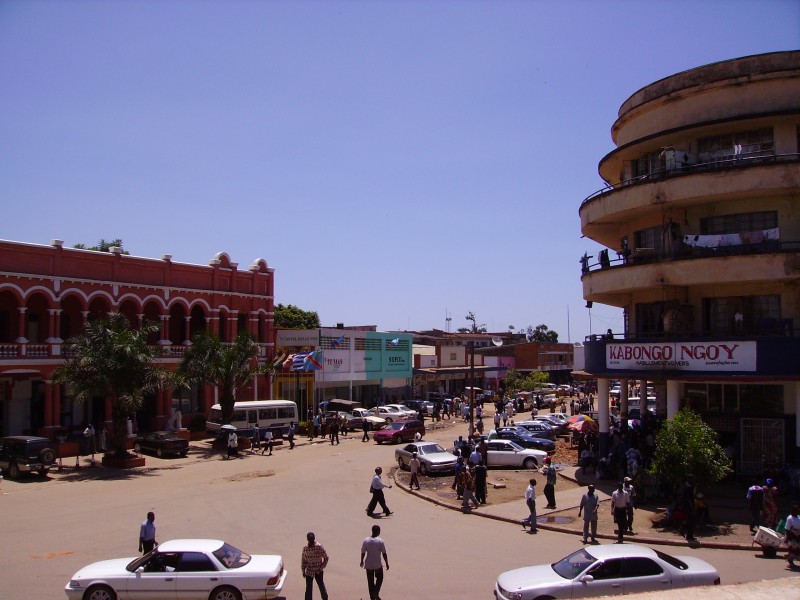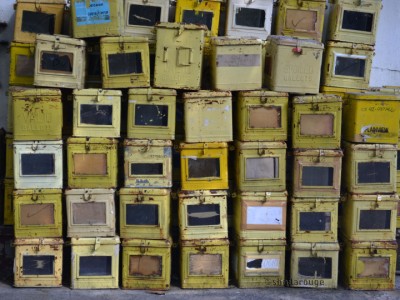Ellery Roberts Biddle, Lisa Ferguson, Hae-in Lim and Sarah Myers West contributed to this report.
Global Voices Advocacy's Netizen Report offers an international snapshot of challenges, victories, and emerging trends in Internet rights around the world. This week's report begins in the Democratic Republic of the Congo, where authorities ordered a full shutdown of mobile-phone and Internet service, in the face of violent anti-government protests. International telecommunications operators in the country told media that they received an official order to suspend service.
After a three-day outage, Internet access was partially restored, but SMS and mobile Internet services remained inaccessible as of January 28.
Approximately 23 percent of DRC citizens use mobile phones, but Internet penetration rates in the DRC are difficult to measure countrywide. Sources familiar with the local media environment say radio remains the most widely used form of mass communication, with fixed-line telephone service and then SMS next in line.
VPNs face off with China
This week, Chinese authorities disrupted users’ access to virtual private networks (VPNs), technologies that enable users in the country to mask their locations, to circumvent the Great Firewall. In China, VPNs such as VyprVPN are widely used in business and academia to access blocked sites, including Facebook, Twitter, and Gmail, and have generally avoided censorship.
Microsoft coughs up private email data post-Charlie Hebdo
In a startling illustration of the speed with which user-data requests are now handled, Microsoft announced it turned over e-mail data requested by the US Federal Bureau of Investigation after the Charlie Hebdo account within 45 minutes of the request. After European interior ministers issued a joint statement calling on Internet companies to remove preemptively “material that aims to incite hatred and terror,” Microsoft’s General Counsel Brad Smith stated, “Democratic societies, not private companies, need to decide on the balances to be struck between public values such as public safety and personal privacy.”
Hong Kong flirts with the Right to be Forgotten
Hong Kong’s Privacy Commissioner Allan Chiang Yam Wang expressed support for the Right to Be Forgotten, an EU policy that requires search engines to remove irrelevant or outdated information. Internet activists in Hong Kong and elsewhere criticized the policy, arguing it would become a “right to delete” that would limit freedom of information. As yet, the Office of the Privacy Commissioner has not made any substantive movements on the issue.
Twitter leaker blocked in Turkey
For months, Twitter user @fuatavnifuat (whose identity is unknown) has been challenging Turkish government authorities by leaking data that officials have classified as “state secrets.” This week, Twitter withheld the user’s tweets in Turkey, following a court decision to block @fuatavnifuat’s social media accounts. A Facebook page listed on the court order also appears to be blocked. The judge who issued the court order warned both companies that their sites will be blocked entirely, if they fail to comply. Twitter, which posts all orders to the Chilling Effects censorship monitoring project, pledged to speed up compliance with Turkish court orders, after being blocked in the country last March.
Crimeans lose (some) Google products due to US sanctions
To comply with US sanctions on Crimea, Google is blocking access to some of its products in the region, including AdSense, AdWords, and Google Play. Crimean users, however, can still access free products, such as Gmail, Google Search, and Maps.
Netizen Activism
Over the past year, the Netizen Report has chronicled the imprisonment of far too many bloggers, media workers, and online activists. The Global Voices community called for their immediate release in a statement released at the Global Voices Citizen Media Summit in Cebu City, Philippines, this week:
Like these individuals—many of whom are our friends and colleagues—we believe in the right and power of open expression to drive change, inspire cooperation, and resolve conflict… We cannot remain silent—and you should not either. We ask you to join us in demanding that all governments fulfill their duty under the Universal Declaration of Human Rights: protect and respect the rights of these individuals.
New Research
- Fostering Freedom Online: The Role of Internet Intermediaries – UNESCO
- Human Rights in the Digital Age – Human Rights Watch
- The Dangers of 3G/4G? An Analysis of the August 2014 Fatwa Against Mobile Broadband – CGCS MediaWire



4 comments